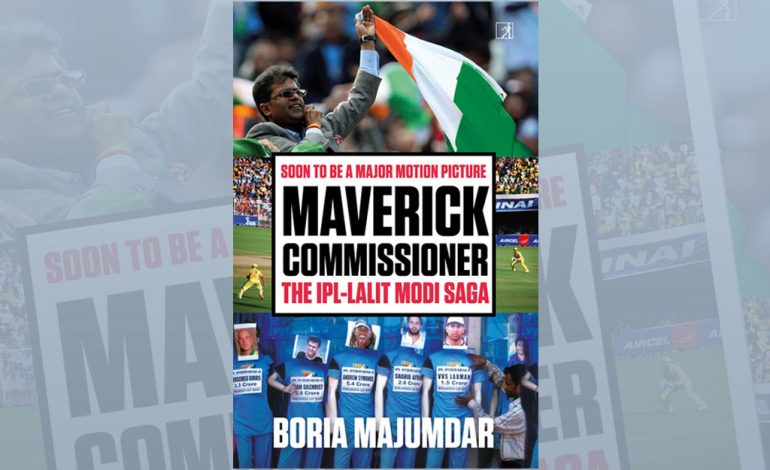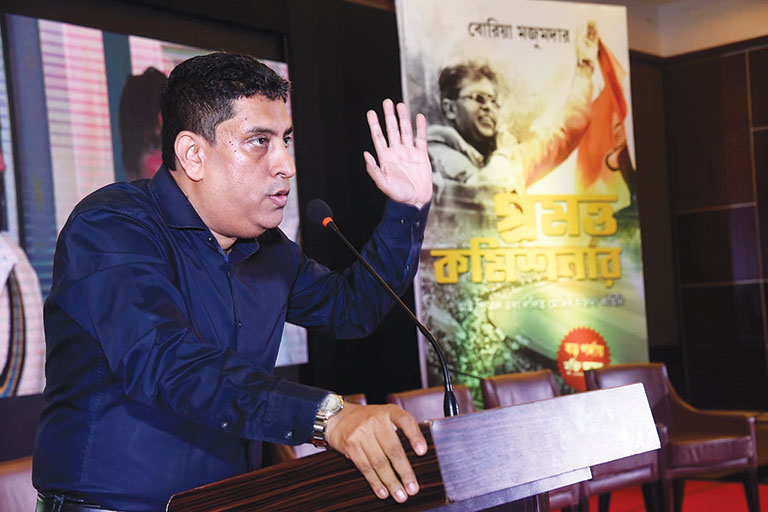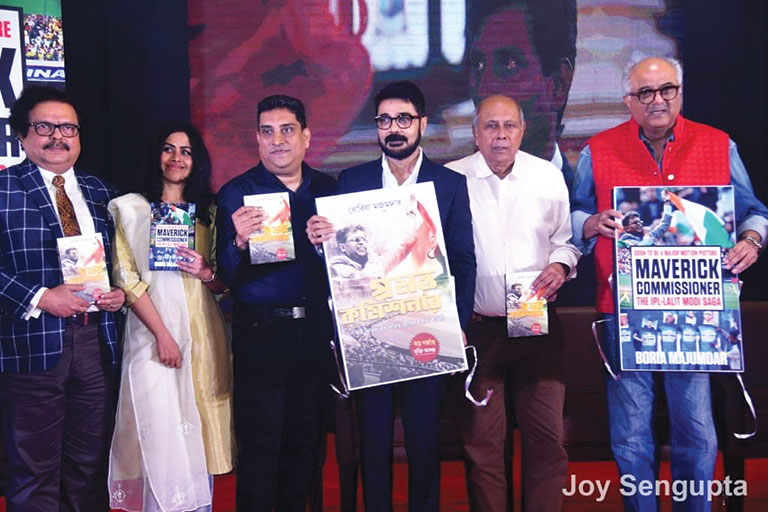
The Czar of Cricket
Maverick Commissioner—The IPL-Lalit Modi Saga authored by Boria Majumdar, one of India’s most influential commentators, is a well-written and insightful read. It provides an unbiased take on the now infamous IPL scandal that happened back in 2010 and rocked the cricketing world resulting in the ousting and flight of its founder Lalit Kumar Modi. Majumdar’s dedicated research into the inner workings of the IPL helps to understand how this organisation came to be and Lalit Modi’s role in its founding. Starting with the conception and its early glory days, Maverick Commissioner quickly gets into the scandal that cricketing fans will remember all too well. Furthermore, the book is chock-full of interviews conducted with a variety of individuals—fans, lawyers and top brass of the BCCI. He provides the readers with information that will—in a way never seen before—shed light on one of the largest scandals in the world of sports. Presenting here an excerpt on what happened behind the scenes when the Kochi delegation—headed by then external affairs minister Shashi Tharoor and wife Sunanda Pushkar—went to meet Lalit Modi to get the franchise agreement signed by him.
Chapter Two—The Institution versus the Individual
The Kochi delegation, I was told, met Lalit at the Four Seasons Hotel in Mumbai, his base, on 10 April 2010 to get his signature on the franchise agreement. It was the nth meeting in a week and each time he had asked them to change things, refusing to put pen on paper. The tension had started to mount and when Shashi Tharoor, acting for the franchise, reached out to the BCCI President, it was a direct fight between the institution and the individual. Lalit was challenging the institution and the BCCI after a point couldn’t have it any further. The BCCI lawyer was under specific instructions to get him to sign the franchise papers and close the chapter. But it was Lalit she was dealing with. Yet again he asked her to change a few things and only then would he comply. When Kaushik called the President, he asked her to do as Lalit was saying. The board was still trying to avoid a head-on collision and hoped Lalit would see the writing on the wall. It was in everyone’s interest that the matter was settled and the controversy nipped in the bud. “Lalit asked her to make a few changes to the document and left the hotel. He went straight to the airport and boarded a flight for Bengaluru. There was an IPL game he had to attend and that was priority. The Kochi document, as far as he was concerned, could wait,” said the source.

Book author Boria Majumdar
“Yes, that’s what happened,” corroborated a terse Shashank Manohar as I called him to crosscheck. “I had asked the board’s legal counsel to get it signed and put an end to the matter. It was a simple thing. However, she called me back and said Lalit had asked her to make a change in the document and even before she could reach his hotel he had left for Bengaluru. I asked her to instruct the Kochi representatives to travel to Bengaluru and get it done. We had enough, and this was starting to get a little frustrating,” he said. Very rarely do you see Manohar getting agitated or excited. More often than not, he is dismissive, and you get the message he doesn’t want to talk. This was an exception that I had him all ears and keen to tell me what had happened. “This is what I know. You need to crosscheck with the others about timings and all. The Kochi representatives did as they were told and soon after Lalit had left for Bengaluru did, they follow him there.” When I reached out to one of the Kochi co-owners, he was taken aback at the question. “How do you know all this?” was the first reaction. “Also, I don’t wish to be named anywhere,” he was firm. Only when I assured him that his name wasn’t going to come in the book did he give me his side of the story. “Yes, we were told to follow him to Bengaluru and frankly that was the only option left. He had driven us to madness, and we were aware he did not want us in the IPL. Without his signature things wouldn’t move and our best option was to chase him down and somehow get it done.”
Even as they tracked Lalit down in Bengaluru, things did not quite work out. Modi informed them that he needed to go to the game and only after he was back around midnight could he meet and sign the papers. Every unreasonableness was acceptable for after all he was the czar. “We waited in the hotel lobby for we did not want to lose him when he returned. If we did, he could turn around and say we weren’t there and hence he had gone to bed for it was already very late!” The sarcasm was apparent but more importantly it was desperation and helplessness. Finally, when Lalit was back in the hotel past midnight, he summoned them for a meeting to put an end to the week-long drama.
Even after winning the tender fair and square, the Commissioner had done everything possible to make things difficult. “It should have been a simple process. We had done everything he had asked us to do. Complied with every order of his. And yet he wasn’t signing the document. Even at midnight he asked the BCCI lawyer to make further changes and that’s when it all snapped. We felt he wouldn’t sign. Under no circumstances was he willing to cooperate. The BCCI lawyer called the President past midnight to tell him what was going on. Frankly, there was no other alternative, said one of the consortium partners.

Majumdar flanked by guests at the book launch
“Yes that’s true,” Manohar concurred. “Akhila called me around 1 a.m. I had stayed awake for I knew there could be trouble. Lalit wasn’t easy to deal with and this was expected. That’s when I decided to act decisively. I called Lalit and I told him he had to sign the document that night itself, failing which I would overrule him and request the Secretary N. Srinivasan to sign the document the next morning. According to the board’s constitution, the Secretary has all the powers to do so and at the end of the day, the IPL is just a sub-committee of the BCCI. We had given Lalit enough of a long rope. He was becoming an embarrassment and had to be stopped. It was only when I informed him that I will be forced to overrule his decision causing him much discomfiture that he relented. If I remember it was around 2:30 a.m. on the morning of 11 April 2010,” said Manohar.
Every document that I have checked and every person, I have spoken to helped corroborate this story. Under pressure from the BCCI and seeing no other alternative in sight, Lalit finally signed the Kochi papers around 3 a.m. on 11 April. Needless to say, he had done so against his wishes and was not something he was pleased with. He was Lalit Modi after all and it was always that he said and other people listened. Here it was the other way round. He was being forced to do things against his wishes on IPL matters, a tournament that owed its existence to him. Lalit had to react and send out a message. He had to show the world who was boss and that’s what he did in a couple of hours.










